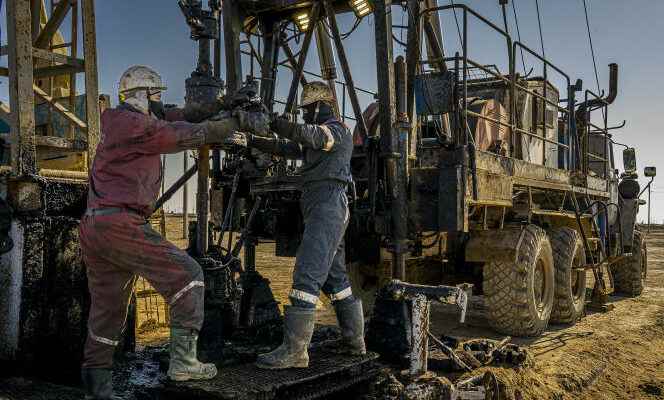Suddenly, the autumnal torpor of Astana, the Kazakh capital battered by the winds of the steppes, gives way to a disconcerting security frenzy. On this Wednesday, October 12, thousands of police station themselves every 100 meters on the main avenues. Entire streets are closed to traffic. Vehicles are randomly searched around the airport. Schoolchildren are asked to stay at home. Reason: the city hosts a series of regional summits until the weekend, including a meeting between Russian President Vladimir Putin and his Turkish counterpart, Recep Tayyip Erdogan.
Their host, the Kazakh President, Kassym-Jomart Tokaïev, displays the diplomatic smile of rigor. Nothing on his face hints at the delicate ridgeline on which he stands. “He does not support the war in Ukraine and is increasingly distancing himself from Moscow, but he absolutely cannot be angry with Putin”summarizes Maximilian Hess, specialist in Eurasia at the Foreign Policy Research Institute, an American think tank.
And for good reason: the Kazakh economy is very dependent on Russia – it accounts for 11.5% of exports and 42.1% of imports – with which the country shares 7,500 kilometers of border to the north. Above all: 80% of the oil that Kazakhstan exports passes through Russian territory to reach the port of Novorossiysk, on the Black Sea, via the Caspian Pipeline Consortium (CPC), in which Moscow is a 31% shareholder. An oil pipeline that is also vital for the European Union (EU): the oil circulating there represents 56% of black gold imports from Romania, 25.6% from Italy, 15.2% from France or 8% of those in the Netherlands.
Russia does not hesitate to exploit this dependency. Since the outbreak of war in Ukraine on February 24, it has already suspended the delivery of Kazakh oil by the CPC on four occasions. Officially, for various maintenance reasons. In truth, to call Astana to order each time it asserts its independence from Moscow a little too strongly.
” Blackmail “
On June 19, the transit was thus interrupted for several days in response to the summit in Saint Petersburg: Mr. Tokayev had affirmed there, in the face of Putin, that he did not recognize the separatist republics of Luhansk and Donetsk. July 6, new cut: two days earlier, Kazakhstan had said it was ready to send more oil to the EU. “ In some ways, this is reminiscent of the blackmail imposed on Europe around the Nord Stream gas pipelines”remarks Lucas Anceschi, specialist in Eurasia at the University of Glasgow (Scotland).
You have 56.69% of this article left to read. The following is for subscribers only.
